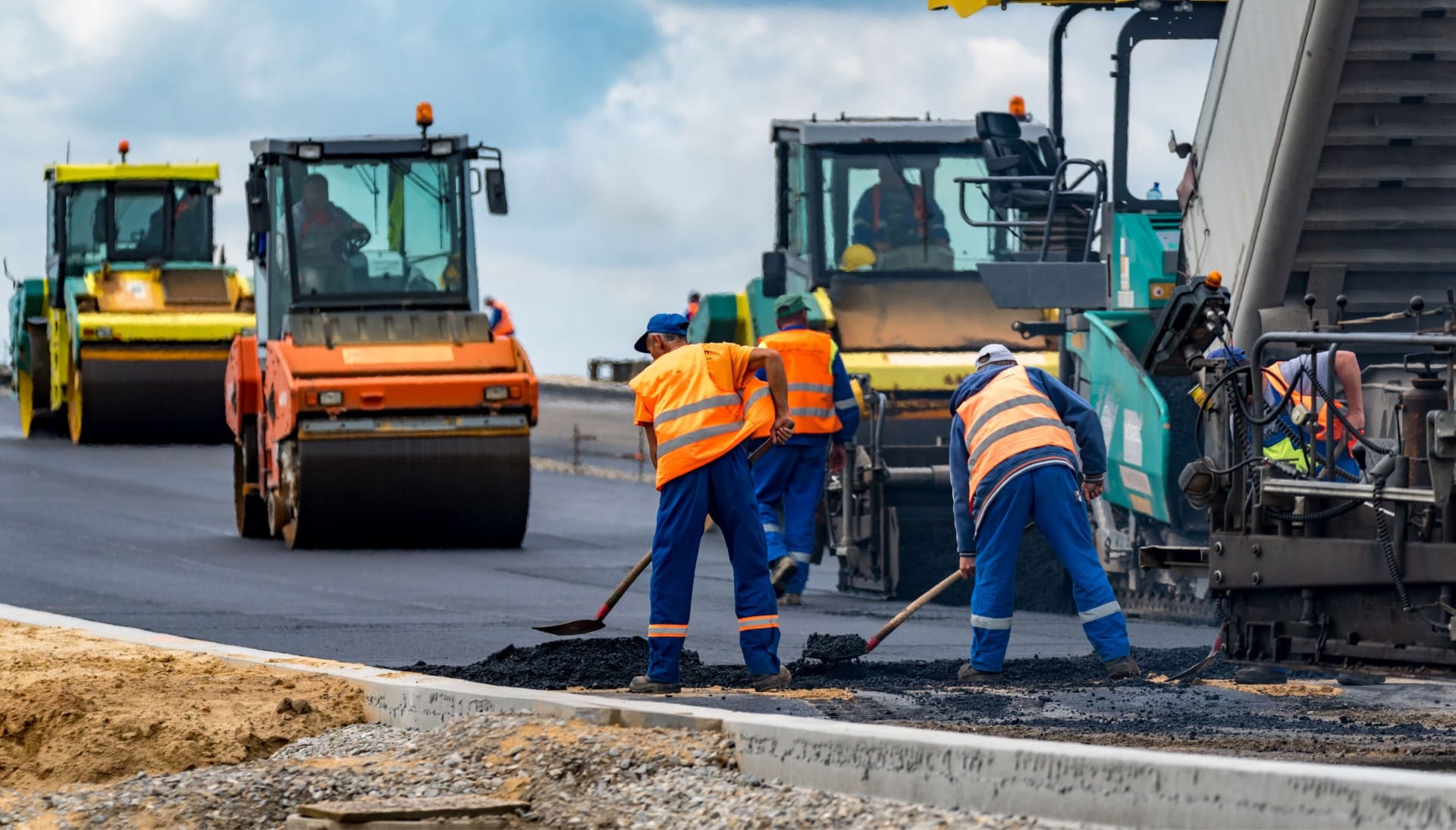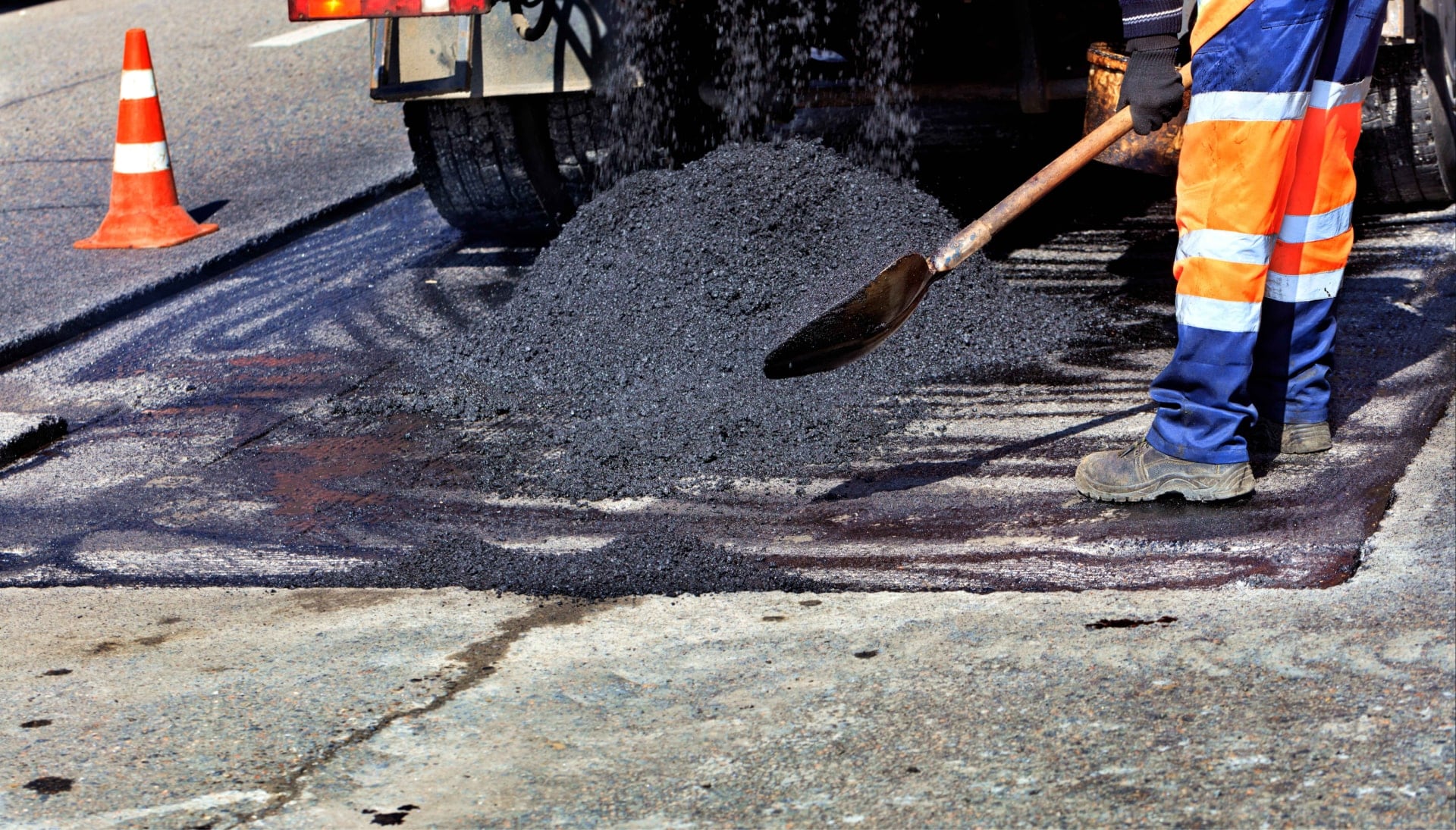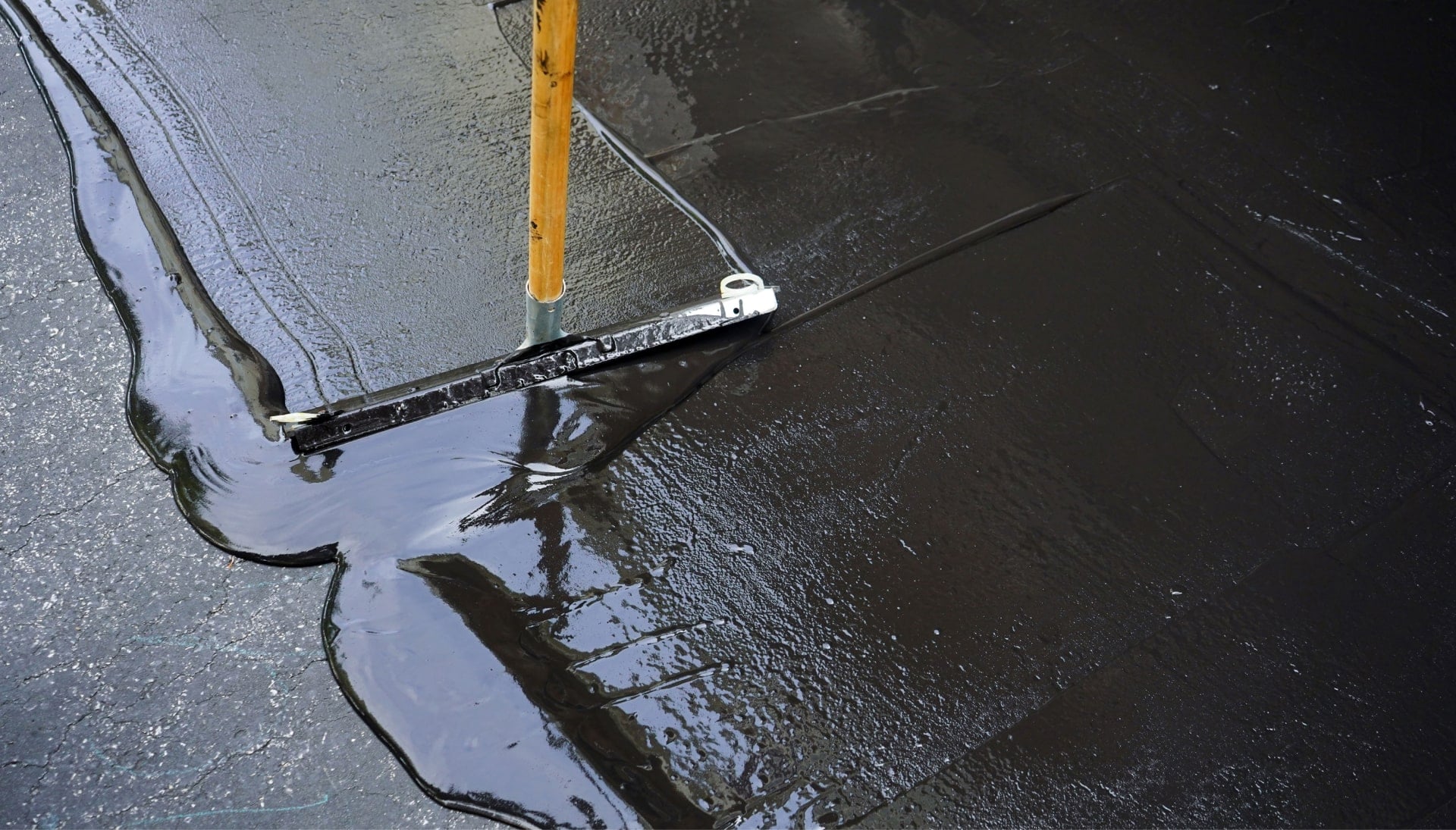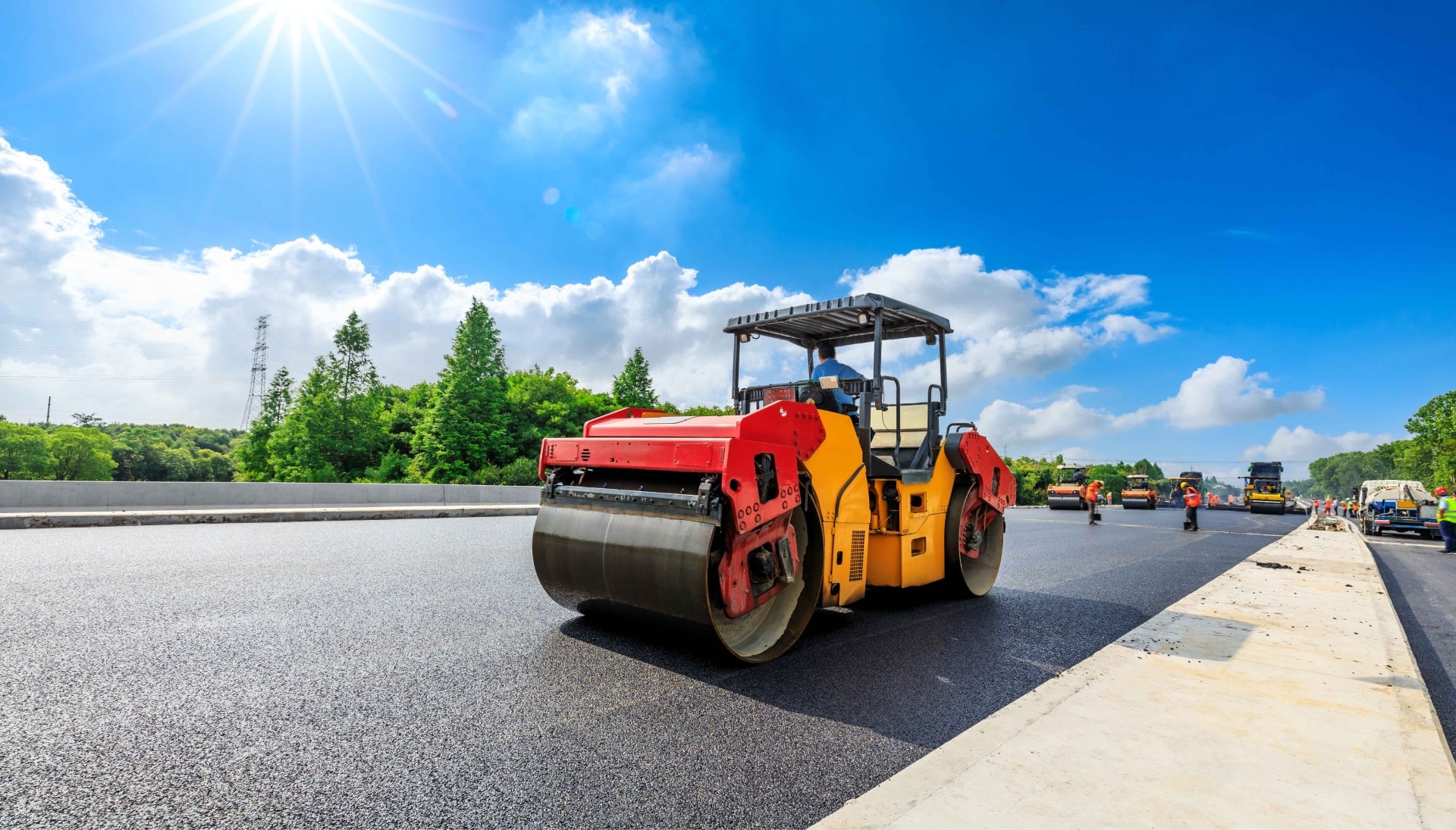We walk on it, run on it, ride bikes, and drive cars on it, yet seldom do we think about what it’s made of. Asphalt, a robust construction material, is what strengthens our roads, pavements, floor tiling, roof tilings, and numerous other industrial products. This brown and black petroleum-like material makes surfaces smooth and durable. However, it tends to crack over time because roads and pavements are prone to wear and tear. Our outdoor surfaces encounter various environmental stressors, from harsh weather conditions to the movement of sturdy, heavy vehicles. As such, even the most solid materials can break with time. Thankfully, we connect you with Greenwood asphalt contractors who specialize in the maintaining, paving, repairing, striping, and sealcoating the roads and paths for the convenience of the citizens. Although several Greenwood paving companies offer similar services, not all asphalt contractors in Greenwood, Indiana are skilled enough to tackle the issues that require experience and professional knowledge.

About Us
Looking for Expert Asphalt Paving Contractors in Greenwood, Indiana?
Our philosophy has always been to maintain only the finest, most impressive standards and turn issues into positive experiences. We’ve kept our promise and served thousands of clients across Greenwood, by connecting them with experienced asphalt contractors in the area. Get connected with local asphalt contractors today!
What Is Asphalt?
Asphalt is a mixture that blends binder, filler, and aggregates. Constructors and road maintainers use it for building railway tracks, airport runways, bicycle lanes, parking lots, sports arenas, and sidewalks. Generally, the aggregates used for the mixture include sand, slags, crushed rock, and gravel. However, a few people have recently started adding waste and byproducts to increase the life of the asphalt. The byproducts typically include other construction materials, which vary per company. Experts use a binder to bind the aggregates and turn them into a strong material. While bitumen is a standard binder, Old City Park Asphalt Solutions of Greenwood, Indiana also use bio-based binders to minimize the effect of environmental stressors. A standard asphalt pavement contains bituminous bound materials. This allows the path to distribute the mixture before loads of vehicles arrive on it. Note that pavements do not consist of asphalt alone. Instead, it contains several layers. These may include the subgrade, formation layer, unbound sub-base, unbound-road base, and finally, asphalt layers.
Since When Has Asphalt Been Used As A Construction Material?
Because people have rarely heard about asphalt – not surprising, anyone would be least interested in knowing the materials used in road construction – many assume it’s a relatively newer product. However, it existed as long as the history books. It occurs naturally in asphalt rocks and lakes. The term “asphalt” comes from the Greek “asphaltos.” Literally, the term means something “safe” or “secure.” In ancient times, individuals used this material to seal ships. Besides, the Mesopotamians utilized it to make temple baths and water tanks waterproof. Moving forward, Pharaohs also benefitted from this material. For example, the Egyptians used it along river Nile banks to prevent erosion. Asphalt was also used to build a road in Babylon in 625 BC. Additionally, Romans waterproofed their aqueducts using asphalt. So, the more humans knew about its usage, the more they started utilizing it. Even today, it is used to construct water reservoirs in America. Further, numerous construction companies use it to build and strengthen roads and make pathways smoother and convenient for pedestrians and drivers alike.
Interesting Facts About Asphalt
Asphalt plays a critical role in shaping the sidewalks and driveways. While its quality drastically impacts its performance, all asphalt types serve a common purpose: building and strengthening roads. We’ve enlisted a few exciting facts about asphalt to give you an in-depth understanding of how it works.
- Asphalt is a durable material. However, its durability depends on the aging of the asphalt binder. Generally, the viscosity of asphalt binder increases with time, making it stiffer and reducing its quality.
- Asphalt might result in the flash point. Like most construction materials, asphalt volatilizes at incredibly high temperatures, releasing vapor to increase the volatile concentration resulting in a flash. However, industry experts test and control asphalt to avoid this problem.
- Asphalt gives a smooth appearance to roadways. Besides, if you love riding bikes, expect a comfortable ride on quality asphalt material.
- Roads constructed with top-notch asphalt reduce noise levels.
- Asphalt also benefits airports allowing for safe landings.
- The many advantages of asphalt might make you think it is expensive, but that’s not the case. This material is cost-effective and adds value to driveways and sidewalks.
- The latest asphalt technology ensures better water drainage, reducing muddy and watery paths in the middle of the road.
- Colored asphalt is a thing, and many construction workers use it. However, it is utilized for specific purposes – to alert drivers regarding dangerous areas like sharp edges that might lead to accidents.
Different Types Of Asphalt
Hot Mix Asphalt
Hot asphalt is made at temperatures between 160-180C. Because it is produced at such high temperatures, it won’t be wrong to consider it one of the most durable asphalt mixtures. Therefore, it is ideal for high-traffic areas – think airport runways or highways.
Warm Mix Asphalt
This mix is not made at high temperatures. As such, it requires less energy and fewer fumes. Although it is a safe material for constructors and the environment, it doesn’t provide the type of robustness hot mix asphalt gives. Therefore, it is better for low-traffic paths and light vehicles.
Emulsified Asphalt
This type of asphalt suspends small cement granules into the water, followed by an emulsifying agent – typically soap. They are less viscous than plain asphalt and are ideal for low-temperature areas. After its application, the water evaporates, and the cement is left.
Foamed Asphalt
This is produced by mixing hot asphalt binder in cold water. When the water touches the hot asphalt, it forms steam and traps in the binder bubbles. As such, it produces a high volume yet thin asphalt foam. This foam only lasts for some time, and the binder reshapes into its original form.
Cutback Asphalt
It combines asphalt cement and petroleum solvent. Therefore, it is also less viscous and a better option for low-temperature applications. The petroleum solvent evaporates when the cutback asphalt is applied, and only the cement is left behind. While cutback asphalt is a reliable option, most companies avoid using it for good reasons. First, it is costly. Second, it can be an environmental problem.
Thin Overlays
Thin overlays are an excellent option for improving riding quality and reducing noise levels. It is typically made from recycled materials and warm-mix asphalt.
Porous Asphalt
The history of this asphalt type can be traced back to the 1970s. Construction workers typically use it in parking lots to allow for water drainage. Also, it’s a budget-friendly option and lasts for years to come, which is a plus.
Is Asphalt a Reliable Material?
Yes, asphalt is a sustainable material that provides long-term solutions for road construction. A few pavements alleviate noise pollution while others reduce environmental concerns. Note that asphalt is also a reliable material for the water environment. Unfortunately, a few people assume it isn’t ideal for the water environment because it is soluble and harmful to marine life. However, its use shows that it is safe for all applications. For instance, people have used it in fish hatcheries for several years. Besides, construction workers have also successfully used it for reservoirs of drinking water. Humans drank water from them, and no issues were reported.
Asphalt
Is There An Issue Living By An Asphalt Plant?
 An asphalt plant is the manufacturing site of asphalt. Studies reveal that even if an asphalt plant adheres to the state and federal air pollution standards, it is not entirely safe to live nearby. Asphalt plants produce toxic air pollutants that may cause skin irritation and respiratory issues. Therefore, living away from the manufacturing sites is better to keep yourself safe and healthy.
An asphalt plant is the manufacturing site of asphalt. Studies reveal that even if an asphalt plant adheres to the state and federal air pollution standards, it is not entirely safe to live nearby. Asphalt plants produce toxic air pollutants that may cause skin irritation and respiratory issues. Therefore, living away from the manufacturing sites is better to keep yourself safe and healthy.
Does Asphalt Thickness Matter?
 How thick asphalt needs to be for construction is something a road engineer decides. Because pavements must withstand several stressors, from heavy vehicles to climatic conditions, they must be solid and firm. Asphalt thickness varies per the construction project. The engineer might decide to keep it less or more thick depending upon the complexity or the simplicity of a project. Typically, roads meant for heavy traffic require a thicker coat.
How thick asphalt needs to be for construction is something a road engineer decides. Because pavements must withstand several stressors, from heavy vehicles to climatic conditions, they must be solid and firm. Asphalt thickness varies per the construction project. The engineer might decide to keep it less or more thick depending upon the complexity or the simplicity of a project. Typically, roads meant for heavy traffic require a thicker coat.
Did We Miss Anything?
Go ahead and give us a call if you are searching for any of the below:
- Asphalt paving companies Greenwood, Indiana
- Greenwood asphalt services
- Asphalt companies in Greenwood, Indiana
- Asphalt paving contractors in Greenwood, Indiana
- Asphalt maintenance services in Greenwood, Indiana
- Asphalt Paving service Greenwood, Indiana

Professional General Services in Asphaltgreenwood
Welcome to Asphaltgreenwood’s trusted general service provider. We deliver quality general solutions for residential and commercial customers throughout the Asphaltgreenwood area.
Why Choose Our Asphaltgreenwood Team
- Experienced, professional technicians
- Quality workmanship guaranteed
- Competitive, transparent pricing
- Licensed and insured
- Excellent customer service
Our Services
We offer comprehensive general services to meet all your needs. From repairs and maintenance to new installations, our Asphaltgreenwood team has you covered.
Get Your Free Estimate
Contact us today for a free, no-obligation estimate. We’re ready to help with your general project in Asphaltgreenwood.